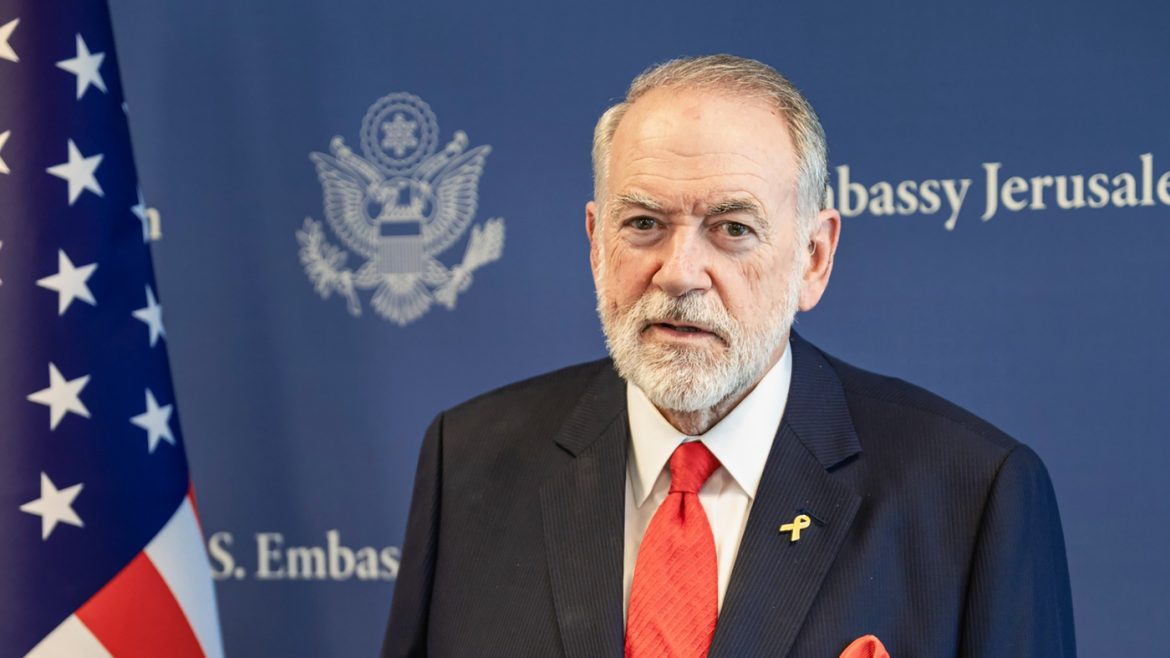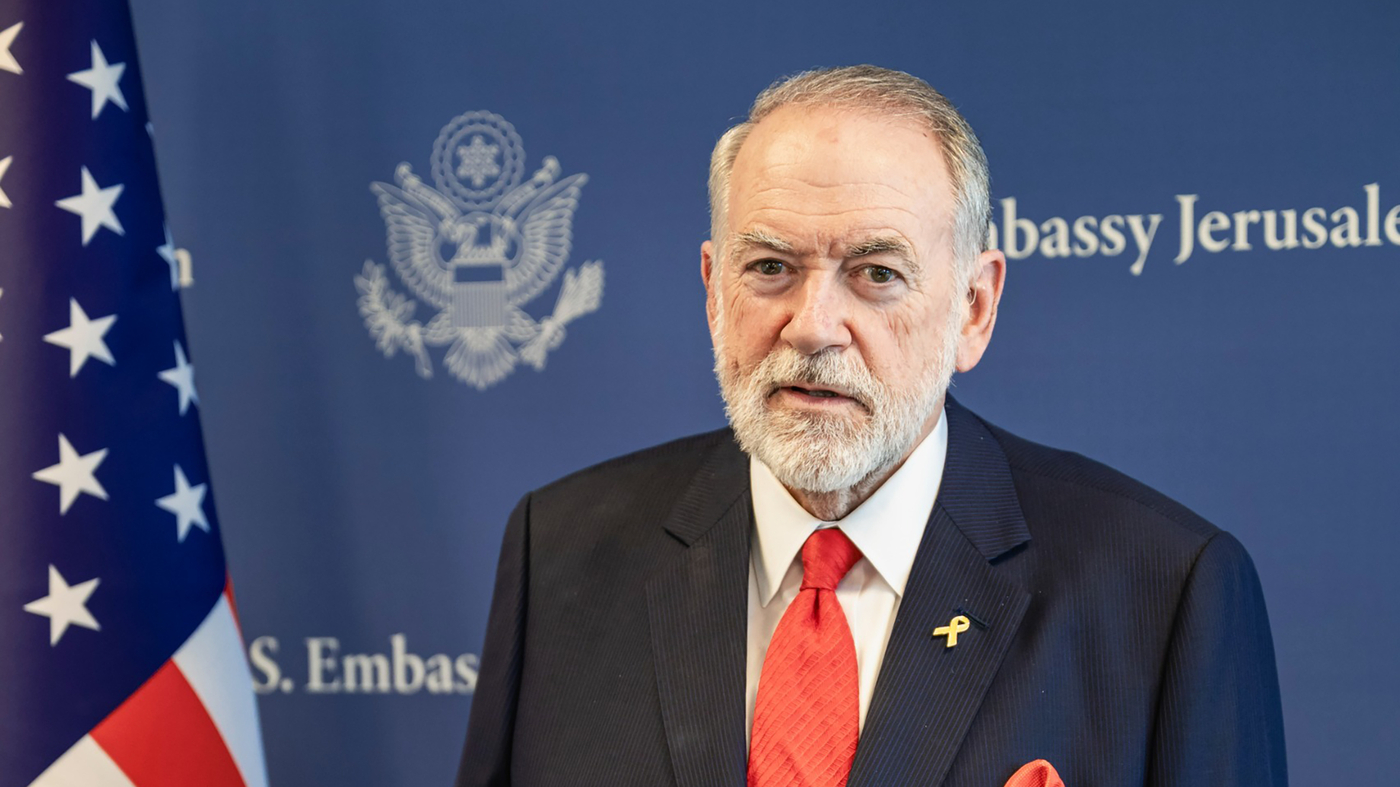U.S. Ambassador Mike Huckabee’s Outrage at European Condemnation of Israel: A Deep Dive into a Complex Diplomatic Landscape
The recent series of statements by U.S. Ambassador to Israel Mike Huckabee has thrust the international discourse surrounding the Israel-Gaza conflict into sharper focus. Huckabee’s outspoken criticism of European leaders—especially those from the U.K., France, and Canada—who condemned Israel’s military actions in Gaza, reflects a significant divide in international responses and reveals intricate diplomatic tensions. This report analyzes the multifaceted dynamics at play, incorporating Huckabee’s recent interviews, historical context, and the broader geopolitical environment.
—
Setting the Scene: Huckabee’s Stance and U.S. Diplomatic Messaging
In a recent NPR interview, Mike Huckabee expressed clear “outrage” at what he described as European leaders “blaming the wrong perpetrator.” Huckabee attributed the suffering in Gaza squarely to Hamas, rather than Israel’s military operations. His criticism came amid mounting international pressure on Israel over its offensive in Gaza, which many European powers viewed as disproportionate or problematic.
Huckabee’s statements encapsulate a broader stance from the U.S. during this period of intense conflict: unwavering support for Israel’s right to defend itself and a framing of Hamas as the principal aggressor responsible for the ongoing violence. This viewpoint aligns with previous U.S. actions and policies under the Trump administration, including controversial moves such as relocating the U.S. embassy to Jerusalem, signaling a clear stance on contested political issues.
—
The European Perspective: Condemnation Amidst Complexity
Contrasting sharply with Huckabee’s remarks, leaders from the U.K., France, and Canada have voiced concerns about Israel’s recent military offensive, highlighting civilian casualties and calling for restraint. These condemnations reflect the sensitivities and political calculations inherent in European foreign policy, where support for Israel is often balanced against human rights considerations and concerns over regional stability.
Huckabee’s denunciation of these European responses as misdirected accusations underscores the diplomatic friction between the U.S. and certain Western allies over how to contextualize and respond to the Israel-Gaza conflict. This divergence is not merely rhetorical but has implications for cohesive international efforts toward conflict resolution and humanitarian relief.
—
Historical and Political Context Driving the Conflict and Responses
The Israel-Palestinian conflict is deeply rooted in decades of historical grievances, territorial disputes, and political developments. NPR’s explanatory coverage highlights this layered background, emphasizing that current hostilities are part of a broader, protracted struggle involving multiple actors and shifting alliances.
President Trump’s administration notably deviated from previous U.S. policies, particularly with symbolic and substantive moves such as:
– Officially moving the U.S. Embassy to Jerusalem, a city both Israelis and Palestinians claim as their capital.
– Strong support for Israeli settlement policies in the West Bank, which many international observers consider illegal under international law.
– Outreach to Arab states with shifting alliances, evident in Trump’s Middle East trips and diplomatic moves involving Syria and others.
Ambassadors like Huckabee and David Friedman have reflected and reinforced this policy trajectory, representing a more hardline, openly supportive posture toward Israeli government policies, including controversial settlement expansions and skepticism toward the two-state solution.
—
Interpersonal Dynamics and Political Tensions within U.S. Policy Circles
Recent reports and interviews suggest that President Trump’s approach to Middle East diplomacy often sidelined traditional Israeli partners like Prime Minister Netanyahu, while engaging directly with other regional actors. Huckabee’s role as ambassador is part of this recalibration, symbolizing a new era in U.S.-Israel relations marked by ideological loyalty and a willingness to challenge longstanding diplomatic norms.
Inside the U.S. administration, figures like David Friedman and Huckabee have at times taken positions that sparked debate or controversy, such as when the embassy move to Jerusalem was announced, or during discussions about sanctions on regional actors like Syria. These moves sometimes strained relations not just internationally but domestically among different political factions.
—
The Broader Geopolitical Implications: Shifting Alliances and Regional Calculations
President Trump’s Middle East trips, weapons deals with Saudi Arabia, and engagements with Gulf nations reflect a complex geopolitical calculus prioritizing economic and strategic interests as much as ideological alignment. The reported “freedom zone” plans for Gaza, ongoing ceasefire talks in Qatar, and attempts to shape diplomatic approaches to groups like the Houthis illustrate the multifaceted challenges embedded in peace efforts.
Meanwhile, nations like South Africa have reacted with diplomatic friction toward Trump’s foreign policy, reflecting wider global repercussions. The tensions between traditional Western alliances and new policy orientations underscore the fragile balance in international relations around the Israel-Gaza conflict.
—
Closing Reflection: The Complexity of Assigning Blame and Seeking Solutions
Mike Huckabee’s vehement dismissal of European criticism highlights a critical and contentious aspect of the Israel-Gaza conflict: the challenge of narrative framing in international diplomacy. While the U.S. ambassador’s focus on Hamas as the “wrong perpetrator” resonates with some stakeholders, many others see the situation as deeply nuanced, involving reciprocal violence and accountability on multiple fronts.
As global pressure mounts and diplomatic efforts continue, the interplay of rhetoric, policy, and humanitarian considerations will shape the trajectory of this enduring conflict. Divergent views like Huckabee’s serve both as a window into one nation’s diplomatic posture and as a reminder of the broader international contest over truth, justice, and peace in one of the world’s most sensitive and volatile regions.
—
The dialogue between these competing perspectives, set against the backdrop of historical grievances and contemporary political calculations, is likely to persist, making the Israel-Gaza conflict a critical subject for ongoing observation and analysis.


